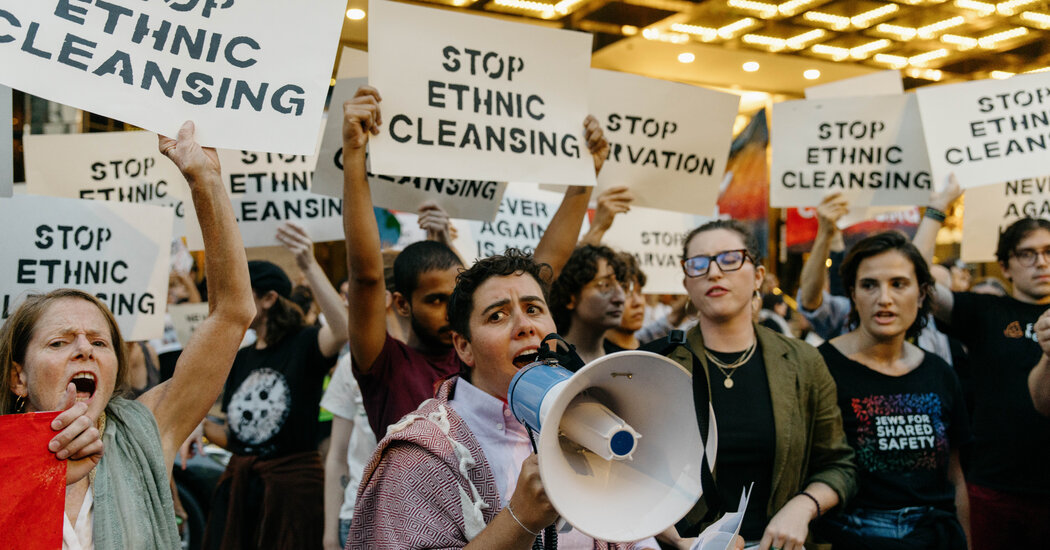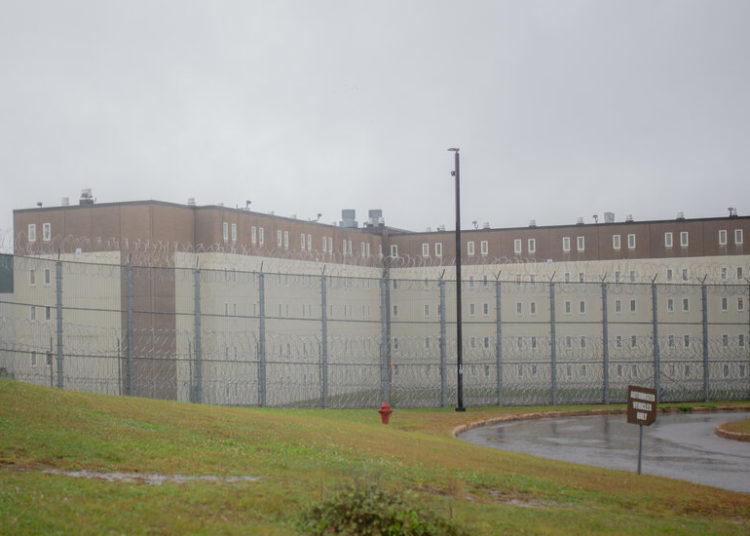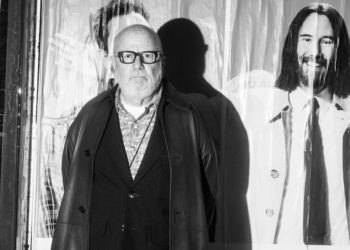As Israel’s tactics in Gaza have increasingly provoked international condemnation, rabbis from across the world are taking the unusual step of speaking out against the Israeli government’s conduct in the war, on moral and religious grounds.
Over the past few weeks, as reports of starvation and mass killings in Gaza have spread, a significant number of clergy across the spectrum of Jewish observance and affiliation have signed a series of high-profile, carefully crafted public letters criticizing the Israeli government.
Associations representing Reform congregations and Conservative rabbis — denominations that encompass nearly half of American Jews — have called for Israel to release additional aid, citing Jewish values and what one group called a “moral priority” to feed the hungry. Nearly three dozen rabbis were arrested in demonstrations in New York and Washington last month, calling for more aid to Gaza and for Israel and its prime minister, Benjamin Netanyahu, to end the war.
Perhaps most notably, the ranks of those raising concerns now also include a small group of Orthodox rabbis, whose communities have broadly not wavered in their staunch support of Israel throughout the war.
Last week about 80 Orthodox rabbis signed an open letter demanding “moral clarity, responsibility, and a Jewish Orthodox response” to what they called a humanitarian crisis in Gaza. Signers included chief rabbis of Poland and Norway, and the former chief rabbi of Ireland. Organizers said that more than half of those who signed the letter were from the United States.
“We affirm that Hamas’s sins and crimes do not relieve the government of Israel of its obligations to make whatever efforts are necessary to prevent mass starvation,” the letter said. “Orthodox Jewry, as some of Israel’s most devoted supporters, bears a unique moral responsibility. We must affirm that Judaism’s vision of justice and compassion extends to all human beings.”
A primary organizer was Rabbi Yosef Blau, the former religious leader of Yeshiva University, a Modern Orthodox institution in Manhattan. Mr. Blau said his concerns encompassed not only the Israeli government’s treatment of civilians in Gaza but also reported violence against Palestinians by Orthodox Jewish settlers in the West Bank.
“The responsibility and the lack of concern that Hamas has for the health and welfare of its own people does not free Israel from having responsibility for the destruction that it has caused,” Rabbi Blau said. “It is not a zero-sum game.”
The Jewish community is far from a monolith, and support for the tactics and mission of Israel’s war in Gaza has varied. But until recently, many mainstream Jewish organizations and leaders had defended Israel’s war against Hamas, if with growing unease.
Orthodox Jews, who tend to prioritize support for the Israeli government, and the groups that represent them have largely remained silent on the humanitarian crisis. Many of signatories on Rabbi Blau’s letter came from the liberal edge of Orthodox Jewry. They were organized by an activist and social worker, David Nyer.
The Orthodox Union, the prominent umbrella organization for Orthodox communities, was not affiliated with the letter.
The deteriorating conditions in Gaza and the denial of aid to Palestinian civilians is prompting some who consider themselves ardent supporters of Israel to publicly object to the far-right government’s stewardship of the war, arguing that it crosses a religious and moral line. The Torah and Jewish tradition command Jews to feed the poor and hungry, respect the sanctity of life and show mercy and compassion.
Rabbi Michael Schudrich, the chief rabbi of Poland, said he had seen other letters but hadn’t signed one until the Orthodox letter last week.
“Even in the midst of a horrific immoral war started by Hamas, it doesn’t take away from our responsibility to feed and to provide medical care for the civilian population,” he said.
Some of the rabbis’ positions echo the anguished calls of protesters and prominent academics, authors, politicians and retired military leaders in Israel, who are increasingly raising alarms about potential war crimes being carried out by the government in their name.
Ministers in the Netanyahu government who have called for Israeli settlers to expel and replace Palestinians in Gaza have “consistently morally compromised Israel’s actions,” the Union for Reform Judaism said last month.
“No one should spend the bulk of their time arguing technical definitions between starvation and pervasive hunger. The situation is dire, and it is deadly,” the group wrote. “Nor should we accept arguments that because Hamas is the primary reason many Gazans are either starving or on the verge of starving, that the Jewish State is not also culpable in this human disaster.”
The Rabbinical Assembly, the organization of Conservative rabbis, cited “the Jewish tradition” in calling on the Israeli government to “alleviate civilian suffering” and “do everything in its power” to ensure that food, water and medical supplies reached Gazans.
Even the American Jewish Committee, one of the country’s most solidly pro-Israel organizations, expressed “immense sorrow for the grave toll this war has taken on Palestinian civilians.”
Still, there is no sign of a unified public effort by the largest American Jewish institutions to pressure Israel into ending the war. Many pulpit rabbis have been reticent to speak out given the complexities of leading a congregation.
In the United States, the war has created painful rifts within the Jewish community dividing families, congregations, religious schools and community organizations. Older and more religiously observant Jews have been stauncher defenders of Israel, arguing that the country’s very survival is at stake — as well as the safety of Jews outside Israel.
But as the war has dragged on, younger and more secular Jews have recoiled from images of carnage and destruction in Gaza, seeing Israel and its government as responsible for the war’s continuation and its toll of devastation.
Many rabbis have found themselves caught in the middle. Some have shied away from discussing Israel from the pulpit or making strong public statements. Others have gingerly sought common ground, introducing new prayers reflecting on the war or hosting community conversations. Many have fiercely advocated the release of all the hostages, a position broadly shared across the Jewish world.
Some observant Jews who have felt unable to criticize Israel in their own communities called the recent response heartening.
“There’s a bit of a feedback loop: When rabbis see that more people in their communities feel comfortable speaking up, it gives them permission,” said Esther Sperber, a founder of Smol Emuni — Hebrew for “faithful left” — a group of observant Jews with progressive political views. Since the group was formed in April, nearly 3,000 people have joined its email list.
“I think that is something that many of us have been waiting for a long time for,” she added, “for the American Jewish community to feel comfortable speaking up in that way.”
Elizabeth Dias is The Times’s national religion correspondent, covering faith, politics and values.
Lisa Lerer is a national political reporter for The Times, based in New York. She has covered American politics for nearly two decades.
The post Rabbis Emerge as Growing Voice of Criticism of Israel’s Tactics in Gaza appeared first on New York Times.




